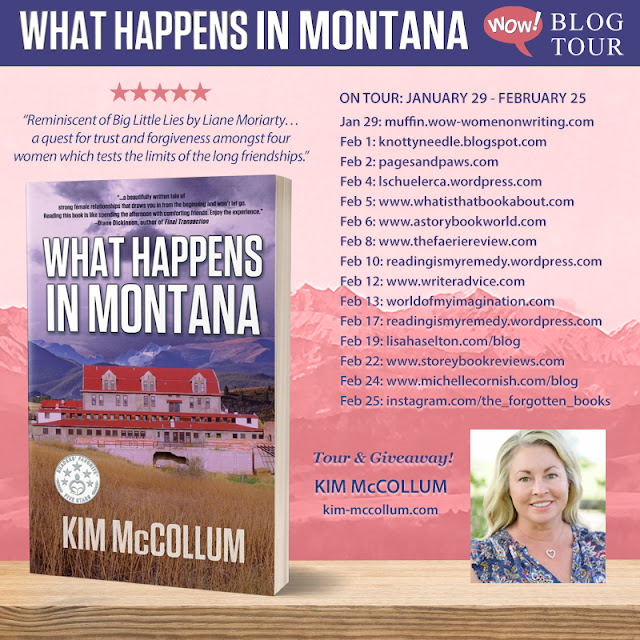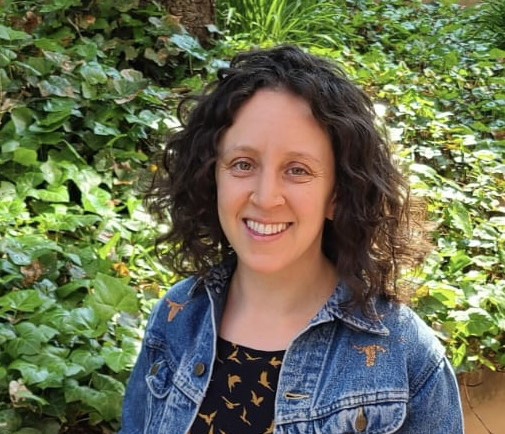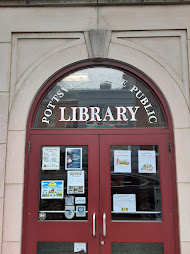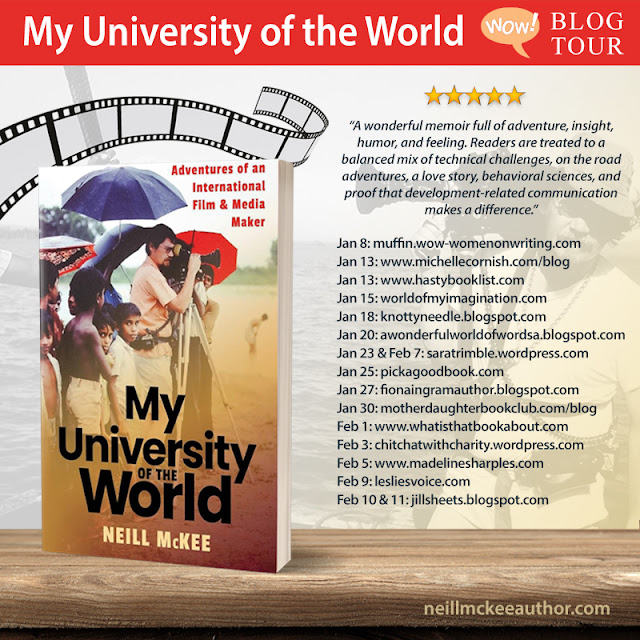Welcome to the
What Happens in Montana blog tour hosted by WOW! Women on Writing! This women's fiction novel by Kim McCollum is perfect for book clubs, empty nesters, and women over 30 who love a great feel-good novel about the power of female friendships. The blog tour starts today and lasts through February 25th.
About the Book
“Reminiscent of Big Little Lies by Liane Moriarty…a quest for trust and forgiveness amongst four women which tests the limits of the long friendships and marital bonds.” – Peter Kiesners, author of Scorpion Grass
“…a real page turner. A strong five stars!” – Diane Hawley Nagamoto, author of The Butterfly Café
“A poignant, realistic story that will tug at your emotions.” – Regina Buttner, author of Down a Bad Road and Absolution
“…well researched, wonderfully written, and historically accurate, is a testament to the power of women’s friendships across generations.” – Sara Fraser, author of Just River
A ghost’s antics, a harrowing moose chase, a hypnosis session, and smuggled booze lead to spilled secrets and betrayal, but do they also lead to murder?
At a hot springs retreat in Montana, whiskey-swigging Maude, the nearly eighty-year-old chef, longs for the glory days when the retreat hosted martini-sipping celebrities instead of long-haired hippies who refuse to wear deodorant. Brooke, feisty, adventurous, and a bit reckless, proposes a reunion at the retreat with her best friends to get away from the chaos of her life with teenagers and the emotional aftermath of her postponed wedding. One of those friends, Tracy, has devoted her life to her children and her husband despite her excruciating boredom. But a long-held secret could cost her the most important friendships in her life. Haunting the place is a ghost who, in life, dealt with tragedy by turning to prostitution which led to her murder over 100 years ago at the very place they all are staying.
What Happens in Montana explores friendship, betrayal, and forgiveness with blunt truth and witty insights. Together, these friends learn to navigate empty nests, infidelity, deception, and poltergeists. Most importantly, they learn their friendship is strong enough to get them through it all.
Publisher: Life: Black Rose Writing
ISBN-13: 1685133606
Print length: 335 pages
Enjoy the Following Excerpt
I glanced at the bird-like woman who sat across from him and wondered how she kissed him with that facial hair. Didn’t it smell like whatever he ate? Or scratch her face? Didn’t errant hair ever tickle her nose and make her sneeze? Maybe they had been together so long that they didn’t really kiss much anymore. Just a peck hello and goodbye. I supposed I could handle facial hair if that was my only interaction with it.
“Hello, I’m Maude, and I’ll be taking care of you tonight. Can I get you anything to drink besides water?”
“Water is fine for me. Dear, what would you like?”
“Oh, I’d like sparkling water. One of those flavored ones, if you have it. Not one that has calories or sugar or anything. Just the essence of lime or tangerine or whatever. Do you know what I mean?” She looked at me with big, pleading eyes. I saw such hunger in those eyes. Lord, this woman needed a huge steak and a baked potato with butter and sour cream. Then she needed a good bottle of wine to go with it and a German chocolate cake to finish it all. This woman didn’t look as though she had been properly nourished and decades. But what I saw most in her eyes was that she had not allowed herself to live. She imposed such restrictions on her life – what to eat, what to wear, what friends to have, what church to attend, what car to drive, what words to say – that she forgot what she wanted. She forgot how to live. She was just going through the motions. She might as well already be dead.
I wanted to tell her to forget calories, forget working out at least five days a week, forget always needing to be a size zero, forget what others think, forget keeping her house perfectly in order, for surely this woman’s house was always in order, and throw all caution to the wind. Eat an entire gallon of ice cream while binge watching Grace and Frankie. Stay in your pajamas till noon and dance to Uptown Funk with the volume so loud the neighbors will call the police. Hike to the top of Boulder peak at dawn to watch the sunrise regardless of the animals you might encounter. Tell your husband to shave that nasty dead rat on his face and kiss him like you did when you were a teen teenager. Just don’t live like life will last forever.
Instead, I said, “Sure. We have lime, grapefruit, and coconut sparkling water.”
About the Author
Kim McCollum graduated from Barnard College as a Japanese major and headed to work on Wall Street. Many miserable all-nighters and the birth of her first child led her to stay home to raise her children. Eventually, she pursued her passion for writing. An excerpt from this novel appeared in
The Copperfield Review Quarterly and her short stories have appeared in
The Dillydoun Review, Beyond Solace, and
Fiction on the Web. She lives in Bozeman, MT with her husband, Brian, and their blended menagerie of five kids, two dogs, and seven spoiled chickens.
What Happens in Montana is her first novel.
--- Interview by Michelle Cornish
WOW: Hi Kim! Congratulations on your debut novel What Happens in Montana. Your book is praised for being "beautifully written" and akin to spending time with comforting friends. How did you approach creating such relatable and engaging characters that resonate with readers on a personal level?
Kim: Thank you! Just like in the book, I really do have a group of girlfriends who I met at a Mommy and Me playgroup in Las Vegas when my oldest child was six months old. Of course, I’ve made up their backstories, but their personalities were my inspiration. There were eight or nine of us at one time but there are three in particular I have stayed close to over the past 21 years. So, they were the inspiration for the friends in What Happens in Montana. In fact, I’ve been told that my dialog is well written, and I can only attribute that to hearing these girlfriends in my head when I’m writing. I put them in a scene and then ask, “What would so-and-so do in this situation?” and I can hear them, complete with their accents and everything. It’s fantastic. I’ve given many of my writer friends this tip and they say it works for them as well.
I’m so grateful for the strong friendships I have from many aspects of my life. I’ve lived all over the country and even spent some time in Germany and Japan, and I have friends I’ve kept from nearly everywhere I’ve lived. They aren’t friends I talk to on the phone or see very often. They are the kinds of friends that no matter how much time goes by between conversations or visits it is as though no time has passed at all. Also, I know that if I needed them at any moment, they would be there for me. There is a confidence that comes with relationships like that. It is comforting and empowering to know you are loved even from afar. So, I am so thankful to my girlfriends for the gift of their friendship - as well as their voices in my head!
WOW: That's wonderful! The setting of a hot springs retreat in Montana is quite unique and plays a significant role in the story. Can you discuss how you chose this setting and the ways in which it influences the characters' journeys?
Kim: I am so glad you asked this question. A couple of summers ago our usual summer route to the lake was detoured and we drove past this incredible-looking building on our new route. My husband, Brian, who has lived in Montana for over thirty years and knows nearly everything about this state told me it was a hot springs retreat that used to host celebrities in its heyday in the 1920s and 30s. He also told me it’s holistic and dry now and is rumored to be haunted. Well, of course, I had to visit! I thought it would be the perfect setting for a quirky, fun, crazy girls’ reunion for my friends in my book. I booked a night alone and I have to say, I didn’t think I really believed in ghosts, but after a night at that creepy place, I think it is a distinct possibility! I’ve changed the name of the retreat in my book because my description isn’t flattering, but that is because the place is pretty run down. I really don’t know how they can stay open with just a tiny portion of the estate fixed up and the rest boarded up and crumbling. Creepy doesn’t begin to describe it!
I love the quote by Neale Donald Walsch, “Life begins at the end of our comfort zone” and I really try to live my life by this motto. I strive to put myself in uncomfortable situations because I believe this is where real personal growth occurs. I thought that putting my girlfriends in an uncomfortable place with a ghost would inspire them to confront things they try to ignore. Being scared and uneasy forces them to interact in a way that is different than they might have in a place they are accustomed to. They deal with their unease by leaning on each other, sharing secrets, and some smuggled skinny margaritas!
"I love the quote by Neale Donald Walsch, 'Life begins at the end of our comfort zone' and I really try to live my life by this motto. I strive to put myself in uncomfortable situations because I believe this is where real personal growth occurs."
WOW: There's nothing like a creepy place to bring friends closer! Maude is an intriguing character with a longing for the retreat's past glories. What inspired her creation, and what do you think she represents in the broader theme of nostalgia and change?
Kim: My favorite characters are quirky, isolated, and often initially unlikeable such as Ove in
A Man Called Ove by Fredrik Backman or Eleanor in
Eleanor Oliphant is Completely Fine by Gail Honeyman, so I was aiming for this type of character with Maude. My grandmother was a spunky, can-do type lady, so she inspired Maude as well. I remember one time she hit her pinky toe on the coffee table, and it was sticking out at a ninety-degree angle and I was horrified but she said, “You get back there!” and shoved it back into place and kept going. I was completely in awe. I also thought of Betty White quite often when considering what Maude might say or do. With Maude, I wanted to show that it is never too late to find connection. And that we can find connection in unlikely places.
With regard to nostalgia and change, I wanted to send the message that nostalgia is wonderful because our memories make us who we are, but we do not give those up when we find new joy in life. Nostalgia and change are not mutually exclusive. Change does not lessen our connection to the past. It is inevitable and doesn’t have to be negative. Often change is positive and heightens our ability to enjoy the present and the future.
WOW: Brooke's life is marked by chaos and postponed dreams. How do you believe her character's adventurous spirit and personal challenges reflect the struggles many women face today?
Kim: Brooke’s struggles mirror my own. I was not a realtor (well, briefly, but we won’t count it among my many careers because it lasted less than a year) but I had worked on Wall Street as an investment banker right out of college. It wasn’t what I wanted to do. When you graduated from an Ivy League school in the early 90s, it was just expected that if you could get a job on Wall Street you should take it, at least among my friends and family that was the understanding. I don’t think I ever even stopped to think about what I wanted to do with my life. I just did what was expected of me. And then when I hated it, I switched to advertising which was much more fun, much less money, and just as many hours. Anyway, we don’t need to go through all my various careers, but my point is that I had many options. But when my first child was born and I started interviewing day care options, I just couldn’t do it. I just couldn’t put my little twelve-week-old in the arms of a stranger day after day. I understand those who have to, and I realize how lucky I am that I was able to make that choice to stay home, but moms are definitely giving something up to make the choice to stay at home, as well.
I tried to keep one foot in the work world with volunteering, substitute teaching, part-time jobs here and there, but when my youngest entered high school, I thought, “Oh crap. What do I do with myself now?” I tried going back to school and taking various jobs, but after staying home to raise kids for nearly 20 years, I no longer had a modern skill set that anyone coveted and was willing to pay for. I would have to start all over again. But my youngest still couldn’t drive and played travelling sports, so I needed many days off to drive him to tournaments, so it didn’t seem worth it to make next to nothing and then not be able to be there for my son. I felt like I had fallen into an abyss. I was not needed (much) by my children anymore but the workplace didn’t need me either. I didn’t know how to find a new identity. I didn’t feel worth much of anything. It’s surprising how much of our self-worth is related to what we do. I had always wanted to write, but my first husband laughed at me and said no one would ever be interested in anything I had to say. Thankfully, my current husband has been my biggest cheerleader from the start. He says the opposite of what my first husband said, so the book is dedicated to him. Between my ex-husband putting me down and my feeling lost without kids or a career, my current husband really helped to help me find my self-worth once again. Some of my early readers of What Happens in Montana are hoping I’ll write a sequel because they want to see more of these characters. They especially want to see Brooke find a good guy. Who knows? Maybe I will!
WOW: Thank goodness for the supportive people in our lives! What do you hope readers will feel or learn after turning the last page of What Happens in Montana? How do you envision your story impacting their perspective on friendship and personal growth?
Kim: I’m hopeful that people will pick up the phone and call or text a friend they cherish but may not have talked to in a while. You know those friends who you really care about but you feel weird because it’s been so long since you talked to them? And you aren’t sure they would want to hear from you? They do. I’ve been in this situation so many times and never has anyone been upset that I reached out. They may not end up being a close friend because time and distance can put your life on different trajectories which make it difficult to connect, but it doesn’t hurt to reach out and say I care about you, and I remember the times we shared together.
I also hope people will look for friendships in unexpected places. Friends come in all shapes and sizes, colors, ages, and geographic regions. Heck, I have a friend I met one night at a bar in Norway who I still check in with from time to time. One night at a bar I made a girlfriend in Norway. How cool is that? I have another friend I met at Harvard during my MFA program (I didn’t end up finishing this program, which is a whole long story for another time) who is taking my book with her to Kenya. I’m also heading out on a two-week road trip from Montana to Maine in April to do book signings with another author friend I met at a pitch conference in New York a few years back. You just never know where a friend could be. Just start a conversation.
"My process is put my butt in the chair for at least 500 words, 5 days per week, write the end early in the process, and withhold judgement until much later, preferably after I’ve written my first draft."
WOW: That is so cool! You just never know who you might meet and where you might meet them—very hopeful and encouraging. Let's switch gears a bit. Can you tell us what your writing process is like?
Kim: I am the worst at getting my butt in the chair to write! What finally worked for me was setting a goal of 500 words per day 5 days per week. Anything more than that and I just wouldn’t do it at all. Many days I ended up writing much more than that. I just had to get started. Other days, each and every word of the 500 was painful. I also forced myself to just keep pushing forward, no matter how bad I thought my writing was. I’d tell myself, “just get to the next scene.” I write the ending at the beginning of my process, so I am pushing toward something. The ending may change, as mine did, but not really all that much. I wrote two half novels before I learned this trick. I’d get to the middle and not know where to go and I’d think it was terribly boring. So, if I thought it was boring, then my readers would too, so I gave up on those. Although, much of my research for one ended up being part of the ghost’s story, so it wasn’t time wasted after all. The other interesting thing I’ve learned is to keep things I think are terrible. So many times, I’d get to the end of an excruciating writing session and think, “Well, that’s the worst writing any human has ever put on the paper, ever!” Then, the next day or so, I’d re-read it and realize, “Hey, that isn’t half bad.” Of course, the reverse is true too. Usually, when I thought I was the next Liane Moriarty or Virginia Woolfe or whomever, I’d read it a week later and realize it was hoity-toity crap. So, my process is put my butt in the chair for at least 500 words, 5 days per week, write the end early in the process, and withhold judgement until much later, preferably after I’ve written my first draft.
WOW: Great tips, thank you! Can you share what's next for you?
Kim: My second novel is in the works, but it is very slow going. I’ve heard the second novel is the toughest and I’m finding that to be true. All that talk about 500 words 5 days per week worked for the first but isn’t working for the second because I am so obsessed with marketing my first. It is really overwhelming all the marketing options out there, so I feel like I am throwing spaghetti at the wall to see what sticks and it is time consuming. I also took quite a bit of time (probably too much) celebrating the publication of this current novel. Hopefully, I will be back in the groove soon because it is a very fun book! It is another very quirky character, named Harriet, who is a stickler for the rules in her perfectly manicured neighborhood in Bozeman, Montana. She seems incredibly rude and unlikable at the beginning, but eventually the reader realizes why she is the way she is and you can’t help but root for her. She will also realize the value of friendship by the end, but in a very different way from Maude. I believe this will be the theme of all my novels – friendship. But I suppose you never know for sure, but I love writing strong, quirky women who find their tribe.
WOW: Well, we are cheering you on! Thanks so much for such a candid interview. All the best with What Happens in Montana and your writing career!
--- Blog Tour Calendar
January 29th @ The Muffin
Join us as we celebrate author Kim McCollum and interview her about What Happens in Montana. You'll also have the chance to win a copy of the book for yourself.
February 1st @ The Knotty Needle
Stop by to read Judy's review of What Happens in Montana by Kim McCollum.
February 2nd @ Pages & Paws
Read Kristine and Kimber's review of What Happens in Montana.
February 4th @ Shoes, Seeds & Stories
Check out Linda's review of What Happens in Montana by Kim McCollum.
February 5th @ What is That Book About?
Stop by Michelle's blog to view a spotlight of What Happens in Montana.
February 6th @ A Storybook World
Visit Deirdra's blog to read a spotlight of What Happens in Montana.
February 8th @ The Faerie Review
Join Lily for a spotlight of What Happens in Montana by Kim McCollum.
February 10th @ Reading is My Remedy
Visit Chelsie's blog to read her review of What Happens in Montana.
February 12th @ Writer Advice
Stop by Lynn's site to read a guest post from Kim McCollum about how she found her publisher.
February 13th @ World of My Imagination
Visit Nicole's blog to read her review of What Happens in Montana by Kim McCollum.
February 17th @ Reading is My Remedy
Return to Chelsie's blog to read a guest post by Kim McCollum about weaving historical fiction with contemporary to tell a ghost story.
February 19th @ Lisa Haselton's Reviews and Interviews Blog
Join Lisa for an interview with author Kim McCollum.
February 22nd @ StoreyBook Reviews
Stop by Leslie's blog to read a review of What Happens in Montana.
February 24th @ Michelle Cornish's Blog
Visit Michelle's blog to read a guest post by Kim McCollum about the writing life with kids, dogs, and chickens!
February 25th @ The Forgotten Books
Join Heather for her review of What Happens in Montana by Kim McCollum.
***** BOOK GIVEAWAY *****
Enter to win a print copy of What Happens in Montana by Kim McCollum! Fill out the Rafflecopter form for a chance to win. The giveaway ends February 11th at 11:59 pm CT. We will randomly draw a winner the next day via Rafflecopter and follow up via email. Good luck!
a Rafflecopter giveaway



.JPG)























